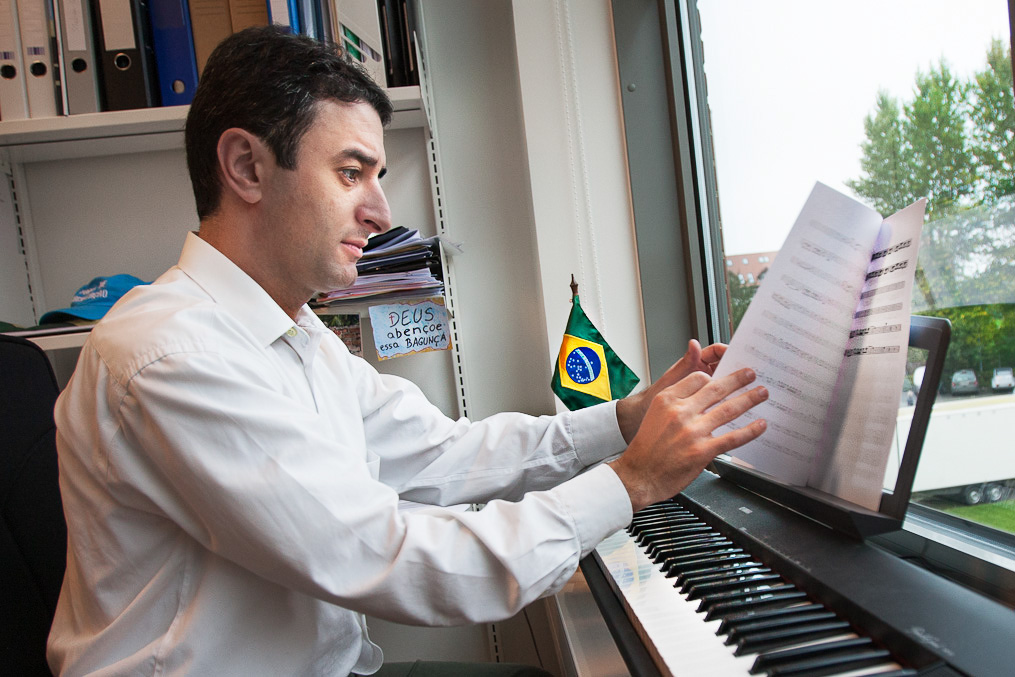Social impact is a key word i Brazilian science
Brazil has focused massively on science, and this opens new opportunities for Danish researchers to collaborate with Brazilian colleagues. In this article, a Brazilian researcher talks about research in Brazil and the opportunities and challenges it offers.

Finances are not the problem if Danish researchers would like to collaborate with their colleagues in Brazil. In recent years, the country has invested large sums in research and setting up international research projects, and grants for higher education have never been greater.
“So it’s an ideal time for Danish researchers to set up collaborative projects,” states Associate Professor of Brazilian Studies Vinicius Mariano de Carvalho, Aarhus University. He says that there is increased focus in Brazil on getting foreign researchers to work with Brazilian colleagues.
“Researchers traditionally came to Brazil to make use of the country, so to speak. But Brazilian academics are instead looking for partnerships that really add something and take the scientific traditions of Brazil into consideration,” he adds.
These traditions include concepts such as interdisciplinarity and the social impact of science. “The key idea for Brazilian research projects is social impact,” explains Dr de Carvalho. “Research grants must give something back to society. A particular requirement in applications from public universities is that they account for the social impact of the research,” he says.
Brazilian research is more strategic considering the situation in the country. “We still have an immense gap between rich and poor, and a lot of social problems to be solved. So you’ll see considerable social engagement in all Brazilian science,” says Dr de Carvalho.
“You’d normally think that scientific methods would be the same in Denmark and Brazil. However, you have this preoccupation in Brazil that what you’re doing is an ethical question,” the Brazilian associate professor stresses.
Interdisciplinarity and creativity
Dr de Carvalho believes that Danish researchers can learn a great deal from their Brazilian colleagues. “Here in Aarhus, we’re talking very much about interdisciplinary research, but this has long been practised in Brazil,” he says.
To illustrate his point, he mentions a federal research project about life in the Amazon. Cultural researchers involved in this project work alongside biologists, linguists, physicians and anthropologists.
He also believes that Brazilian creativity can inspire Danish researchers. “Perhaps because of the conditions in the country. Brazilians are quite inventive when methods or techniques don’t work properly and they have to work with challenges and unexpected situations,” he says.
“This creativity in developing new methods and approaches to problems might be interesting for Danes to learn. On the other hand, it could be interesting for Brazilians to get to know the Danish teamwork model. We need to focus much more on human collaboration,” he continues.
Culture is a challenge
According to Dr de Carvalho, the greatest challenge for collaboration between Danish and Brazilian researchers is perhaps the cultural norms.
“Brazilian culture isn’t like it is here in Denmark. When you’re setting up collaboration, it’s important to keep an eye on cultural codes such as timing, deadlines and other issues related to human connections,” he says.
And Dr de Carvalho emphasises that personal relations are very important. “I need to know you to be sure I can trust you, and trusting someone is quite personal. I think it’s a challenge to realise how Brazilians behave in their personal relations,” says Dr de Carvalho.
He also encourages researchers to contact the Brazilian Studies programme at the Department of Aesthetics and Communication if they would like to be put in touch with Brazilian colleagues. “We’re in touch with researchers in a considerable number of fields, and I think it’s a job for Brazilian Studies to support people and build bridges between Denmark and Brazil,” says Dr de Carvalho.